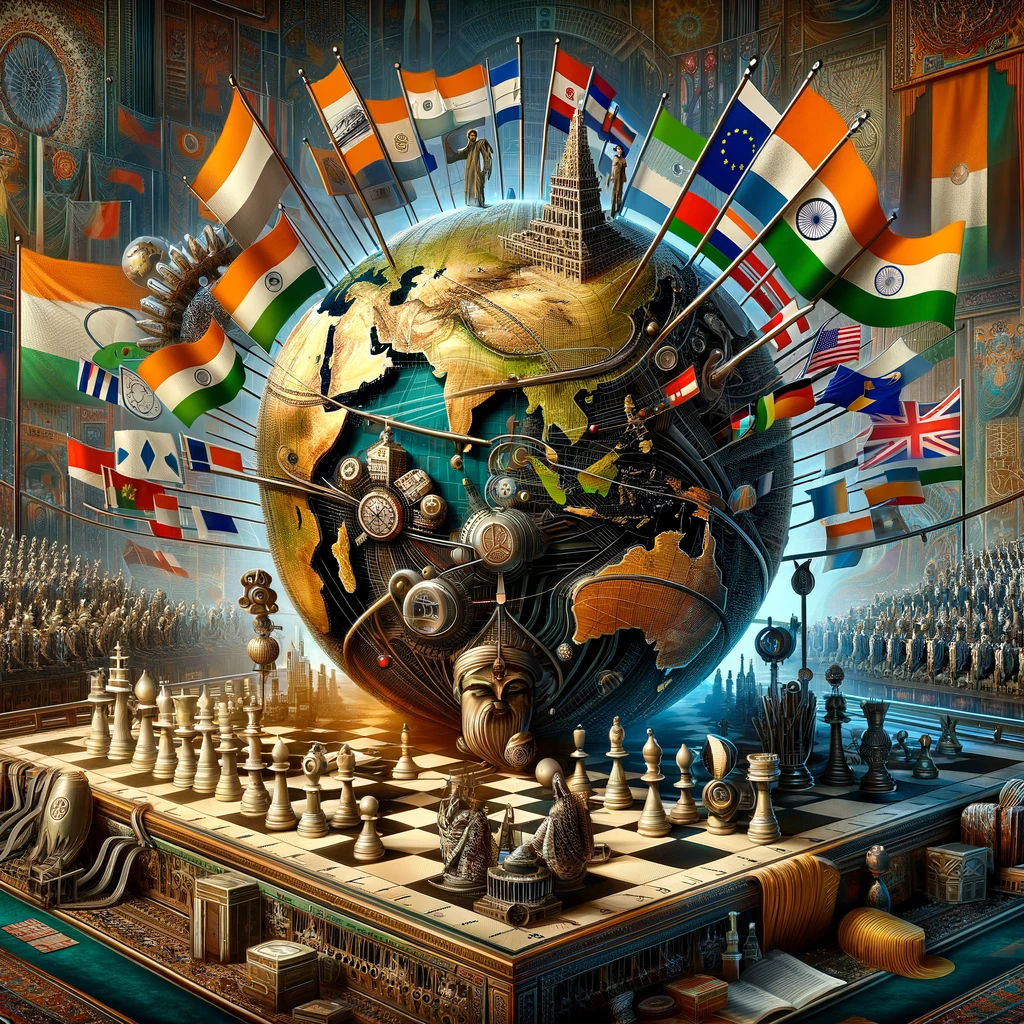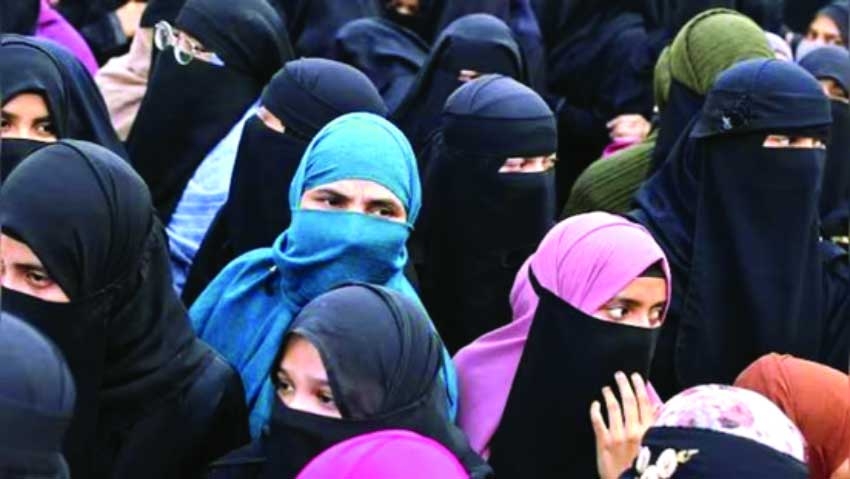In this week’s feature story, we unpack International Relations (IR) theories in the context of election interference in India. As readers, you will also see me fumble my way trying to explain what my professors so diligently taught us in our IR Theories and Praxies class. If you’re not here for the ‘Gyaan’, at least read till the end so you have something different to be mad about on a Monday evening.
In the completely vibrant and not-at-all-volatile landscape of Indian politics, every whisper and murmur is subject to intense scrutiny. Recently, a particularly sensational narrative has captured the public’s imagination: the spectre of foreign interference in elections. This isn’t just idle chatter; from Moscow’s silent corridors of power to the bustling newsrooms of Washington, reports and analyses suggest a concerted effort to steer the democratic processes of what is proudly known as ‘the world’s largest democracy.’
Even Prime Minister Narendra Modi has not shied away from hinting at these external influences, igniting a firestorm of media speculation and public debate. But beneath the surface of these explosive accusations, we must discern whether these are credible threats or merely political chess moves designed to distract and deflect.
Deciphering Motives Through IR Theories
Understanding the potential for foreign interference in Indian elections requires a deep dive into five predominant theories of international relations: Realism, Liberalism, Constructivism, Marxism and Feminism. Each offers a unique perspective on why such meddling may occur and what it aims to achieve.
Also read: Impact of Cancel Culture
Realism: The Strategic Power Play
At its core, Realism is about power and survival in a global system where states act primarily in their own interest. In this light, allegations of foreign interference are viewed through the prism of strategic rivalry. Russia, often accused of similar tactics in Western democracies, emerges as a key player. Its vehement denials do little to dispel the cloud of suspicion, especially against the backdrop of its historical geopolitical strategies.
Conversely, Russian officials have thrown accusations back at the United States, suggesting a tit-for-tat scenario where major powers are using India as a battleground for their own supremacy. This narrative suggests a complex jigsaw of alliances and enmities, where India’s electoral integrity could be collateral damage in a larger struggle for regional dominance.
Liberalism: Ideals at the Forefront
Liberalism offers a more optimistic view, suggesting that states are motivated by rules, norms, and cooperation rather than mere power. From this vantage point, Western criticism of Indian politics, especially regarding democratic practices and human rights, might be seen as efforts to promote global standards. However, the selective timing and critical tone of these reports—from outlets like The New York Times and Bloomberg—raise questions about their intent.
Are these criticisms truly aimed at fostering better governance and human rights, or are they tactics to sway public opinion and election outcomes in favour of Western interests? This perspective paints a complex picture of international diplomacy where ideals and influence are inextricably linked.
Constructivism: Shaping Narratives
Constructivism shifts the focus from material power to the power of ideas and culture in international politics. It posits that foreign interference might aim to reshape India’s political narrative, thus influencing public perceptions and electoral outcomes.
This theory illuminates how external actors could exploit media and cultural channels to propagate favourable views or discredit opposing ones, subtly tilting the electoral balance. The goal here isn’t just about changing policies, but about altering the very identity and ideological leanings of India, aligning them more closely with the interfering state’s worldview.
Marxism: The Economic Undercurrents of Electoral Influence
Marxism in international relations focuses on the economic structures, class conflicts, and material interests that shape global politics. From a Marxist perspective, foreign interference in Indian elections could be interpreted as an extension of capitalist pursuits, where powerful states and multinational corporations manipulate political outcomes to secure economic dominance. This manipulation ensures that the resultant political environment favours free market policies and international trade agreements that align with the interests of global capitalists.
In the context of India, a country that has embraced neoliberal reforms and become an attractive destination for foreign investment, the stakes are high. Foreign entities, driven by profit motives, may seek to influence election outcomes to install regimes that are pro-business and likely to implement policies that facilitate exploitation of local resources and labour. This could manifest through direct support of certain political parties or through more subtle means such as shaping public opinion via media channels owned or influenced by these capitalist entities.
Feminism: Gendered Perspectives on Electoral Politics
Feminism in international relations examines how gendered power relations affect global politics, emphasising the roles and representations of women and marginalised communities. A feminist analysis of foreign interference in Indian elections would highlight how these interventions might perpetuate gender inequalities or alternatively, how they could empower underrepresented groups.
Foreign interference might exploit or reinforce patriarchal structures by supporting candidates who favour conservative gender roles, thus affecting policies on women’s rights, gender equality, and social justice. Conversely, international feminist groups and women-led NGOs might support candidates or policies that aim to enhance women’s representation in politics, increase gender equality in legislation, and address issues such as violence against women, healthcare, and education.
The intersection of foreign influence and feminism is also evident in how narratives are constructed. For example, foreign media and organisations might highlight the plight of Indian women as part of their electoral interference, using these stories to sway public opinion both domestically and internationally. This could be seen as a form of ‘white saviour’ complex where foreign entities position themselves as necessary intervenors to ‘save’ Indian women, thus undermining local feminist movements and sidelining the voices of Indian women themselves.
Election Interference: India’s Role on the Global Stage
India, with its burgeoning global influence, is not just a victim but also a player in the realm of international electoral politics. It has historically engaged in activities that could be construed as interference, aiming to shape political outcomes in neighbouring countries like Nepal, Sri Lanka, the Baloch area of Pakistan, PoK itself, and particularly Bangladesh during its 1971 war of independence. These actions, often justified as efforts to maintain regional stability or protect national security, highlight the reciprocal nature of international meddling.
Guarding Democracy
The intertwining of domestic politics with international interference paints a complex picture that extends beyond mere political intrigue. It underscores the ongoing struggle to maintain sovereignty and integrity within India’s democratic processes. As the nation undergoes a host of electoral battles, the imperative to safeguard its electoral mechanisms becomes all the more crucial. Ensuring a robust defense against both internal and external threats is essential to preserving the democratic voice that defines India.
Synthesising IR Theories in the Discussion of Electoral Interference
When combined, Marxism, Feminism, Constructivism, Realism and Liberalism all offer a rich analytical framework that highlights the interconnectedness of socio-political, religious, economic exploitation and gendered power dynamics in the context of foreign interference in elections.
All these theories underscore the importance of scrutinising who benefits from such interference and who is marginalised or silenced in the process. This dual lens helps reveal the multifaceted nature of power and influence in global politics and their direct impact on the socio-political landscape of nations like Bharat.
These perspectives encourage a deeper examination of not only the political and economic implications of foreign interference in Indian elections but also the social dimensions, particularly in terms of class struggle and gender equality. Addressing these issues requires a vigilant and holistic approach to safeguarding India’s democratic processes, ensuring they are free from both external manipulation and internal inequalities.
The discourse on foreign interference in Indian elections transcends mere policy debate—it is about the resilience of India’s democratic institutions. How do you perceive the influence of foreign powers in shaping the outcomes of Indian elections? Are there any historical instances from other nations that resonate with India’s current predicaments? The comment section below is looking rather dead, engage with us and let’s deepen our understanding of this oddly fascinating subject.




